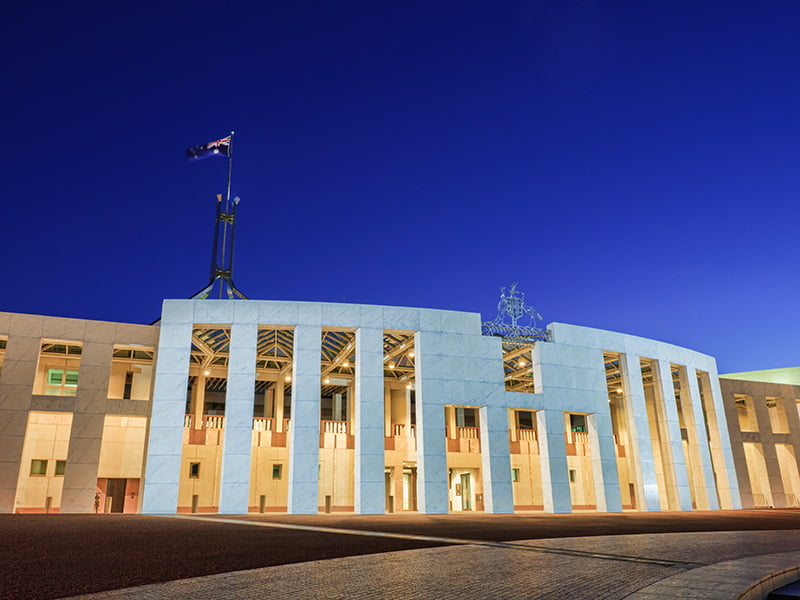The federal government will embark on the “most significant reforms” to Australia’s payment system in 25 years with new regulations to target big tech firms and the cryptocurrency sector.
Treasurer Josh Frydenberg announced the reform plan on Wednesday afternoon, most of which won’t be delivered until the end of next year, well after the next federal election.
The government is planning to give the Treasurer the power to designate new and emerging payment platforms such as Apple Pay and apply the same rules and regulations to them as apply to the big banks.
It is also looking at regulating cryptocurrency exchanges and will investigate the feasibility of establishing a retail central bank digital currency.

Mr Frydenberg said the policy package marks the most significant changes to Australia’s payments landscape in a quarter of a century and will “ensure Australia is at the front of the pack when it comes to harnessing the benefits of the digital economy”.
“It is how we will capitalise on the opportunity for Australia to lead the world in this emerging and fast-growing area which has almost endless potential applications across the economy,” Mr Frydenberg said in a speech to the Australia-Israel Chamber of Commerce in Melbourne on Wednesday.
“As more Australians utilise these technologies and invest in these digital assets, it is important that a robust regulatory regime underpins their interactions. Our reforms will do just that. They will give consumers greater confidence in their dealings with and utilisation of these crypto assets and new payment methods.”
The regulatory framework overseeing Australia’s payments system has remained largely unchanged over the last two decades, despite a significant increase in the use of digital payments through the likes of Apple Pay, and an increase in popularity in investing in cryptocurrencies.
These transactions are currently taking place in largely unregulated areas, with Mr Frydenberg warning that if the government doesn’t step in, this would continue to allow big tech and foreign governments to set the rules.
“Given the pace of change and those leading it, if we do not reform the current framework it will be Silicon Valley that determines the future of our payments system. Australia must retain its sovereignty over our payment system,” Mr Frydenberg said.
The reforms include recommendations from three recent reviews: the Farrell Payment System Review, the Senate report on cryptocurrencies and a review into mobile payment and digital wallet financial services.
The government will develop a strategic plan by mid-2022 for the new payments systems framework, which will then be reviewed annually.
This will include the legislated power for the Treasurer to direct payment system policy and address emerging and future gaps in the payments regulatory framework, such as designating Apple Pay or Afterpay as a financial service.
A licensing framework for cryptocurrency exchanges will also be consulted on early next year, which will see the buying and selling of crypto regulated and a custody regulatory regime for businesses holding crypto.
“For businesses, these reforms will address the ambiguity that can exist about the regulatory and tax treatment of crypto assets and new payment methods. In doing so, it will drive even more consumer interest, facilitate even more new entrants and enable even more innovation to take place,” Mr Frydenberg said.
The Board of Taxation has been tasked with advising on how digital transactions and assets should be taxed, with a report due by the end of the year.
In the second half of 2022, Treasury will begin consulting on how to introduce a Decentralised Autonomous Organisation in the regulatory framework.
A central bank digital currency (CBDC), a digital currency issued by a central bank and linked to sovereign currency, may be launched in Australia, with the government to consult on the feasibility of this before the end of next year.
These were all core recommendations from the Select Committee on Australia as a Technology and Financial Centre’s, chaired by Liberal Senator Andrew Bragg, final report from October.
In response to the announcement, Senator Bragg said Australia is set to be a “world-leading crypto hub”.
“The world is watching Australia which is now setting the global standard for crypto, payments and digital wallet reform,” Senator Bragg said.
“These are key micro-economic reforms which will drive more choice and lower prices for Australians. This will be a key driver of investment and jobs over the next decade. It is high time that the Treasury reclaims the payments policy mantle.
“The Australian government, not Silicon Valley, or Shenzhen or the RBA should run Australia’s payments policy. Now we are back in control of payments policy.”
Do you know more? Contact James Riley via Email.

